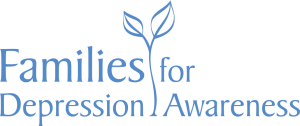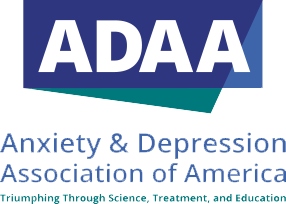Eating Disorders and Major Depressive Disorder (MDD)
Reviewed by Amy Baker Dennis, PhD, FAED
What is the Link Between Eating Disorders and Depression?
Approximately 50% of individuals with eating disorders also have major depressive disorders. Some individuals experience significant depression prior to the onset of their eating disorders (known as primary depression).1 Others develop depression simultaneously with their eating disorder and some develop depression after the onset of their eating disorder (known as secondary depression). Many of the criteria used to diagnose clinical depression are also the consequences of restriction, binge-eating, and/or engaging in compensatory behaviors like purging or excessive exercising. If the individual has secondary depression (began simultaneously with, or after the onset of eating disorder symptoms), psychotropic medications that are often used to treat clinical depression are not usually recommended. In most cases, depressive symptoms will improve with the normalization of eating patterns and the elimination of compensatory behaviors. However, if the individual has primary clinical depression, the use of psychotropic medications can often be very useful in helping to relieve depressive symptoms and help the individual participate in the psychological treatment of their eating disorder more fully.2
What are the Signs and Symptoms of Depression? 3
- Feelings of emptiness and hopelessness
- Irritability, anxiousness, and guilt
- Feelings of exhaustion, severe tiredness
- Feelings of tension
- Loss of interest and energy
- Low libido
- Inability to concentrate or remember details
- Suicidal thoughts or attempts of suicide
- Changes in appetite – eating too much or too little
- Physical symptoms – aches and pains, cramps, headaches, digestive issues, breast tenderness, bloating
- Mood swings
- Sleep disturbances; sleeping too much or too little, insomnia
How is Depression Treated?
Eating disorders and depression may be treated at the same time and in some cases can be treated in the same manner. However, recovery from one disorder does not ensure recovery from another. Therefore, it is important to seek help for both issues and find a professional or treatment facility that specializes in both eating disorders and depression. Educate yourself, be proactive, and know that both these disorders are treatable.
Learn more about treatment here.
Learn more about finding treatment providers in your area here.
Resources

Families for Depression Awareness helps families recognize and cope with depression and bipolar disorder to get people well and prevent suicides.

Anxiety and Depression Association of American provides information and resources to those impacted by depression and anxiety disorders including educational resources, treatment options and peer-to-peer support community forums.
Sources
[1] Hambleton, A., Pepin, G., Le, A., Maloney, D., National Eating Disorder Research Consortium, Touyz, S., & Maguire, S. (2022). Psychiatric and medical comorbidities of eating disorders: findings from a rapid review of the literature. Journal of eating disorders, 10(1), 132. https://doi.org/10.1186/s40337-022-00654-2
[2]Grave, R. D., Sartirana, M., & Calugi, S. (2021). Complex cases and comorbidity in eating disorders: Assessment and management. Springer Nature. https://doi.org/10.1007/978-3-030-69341-1
[3]American Psychiatric Association. (2022). Diagnostic and statistical manual of mental disorders: DSM-5-TR. American Psychiatric Association Publishing. https://doi.org/10.1176/appi.books.9780890425787

